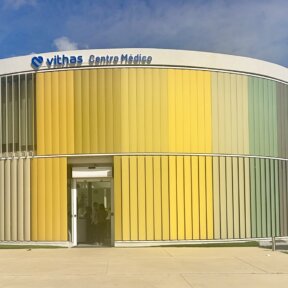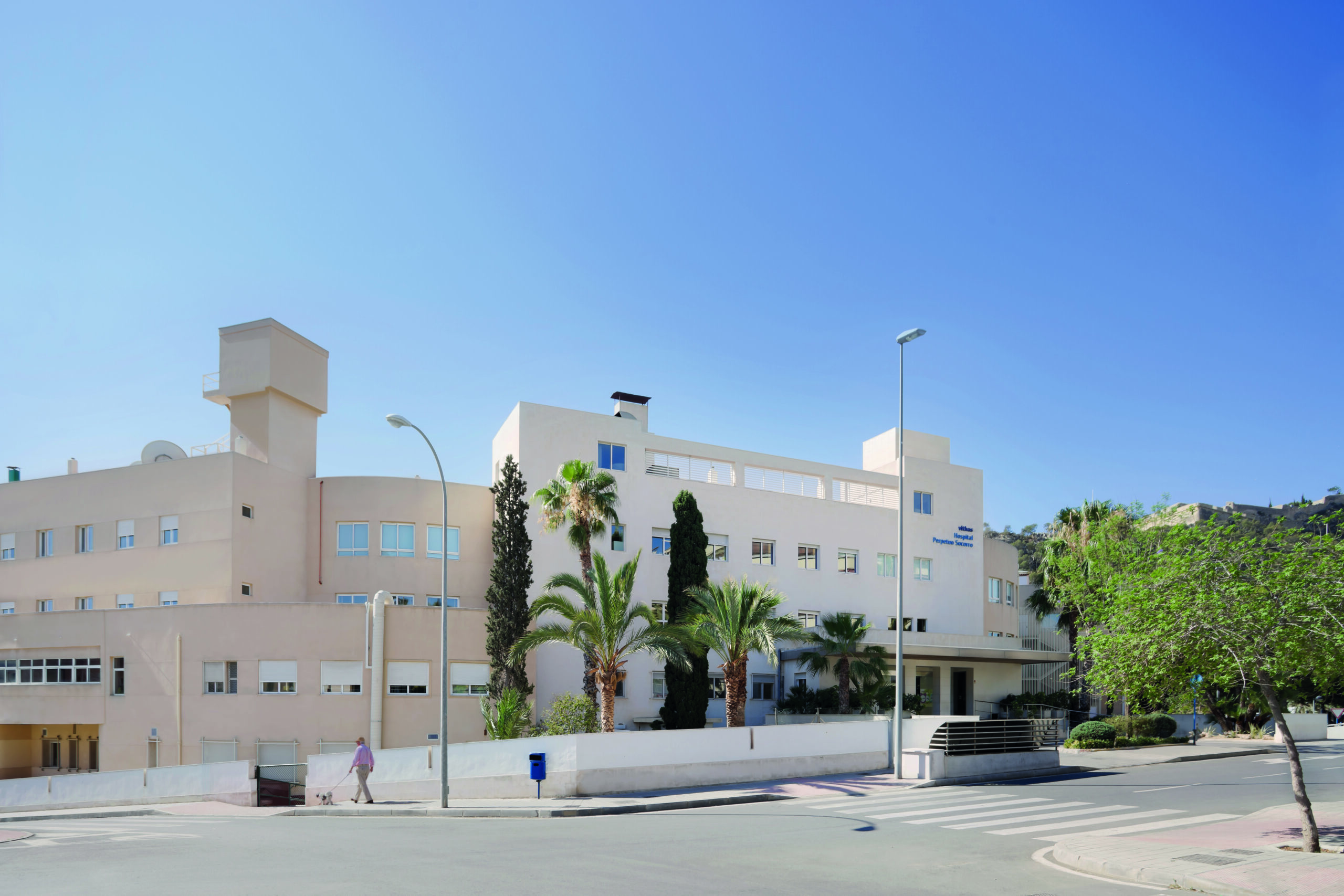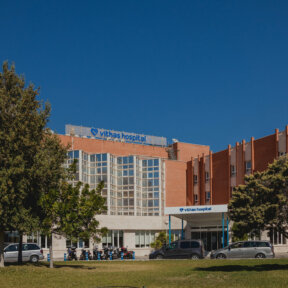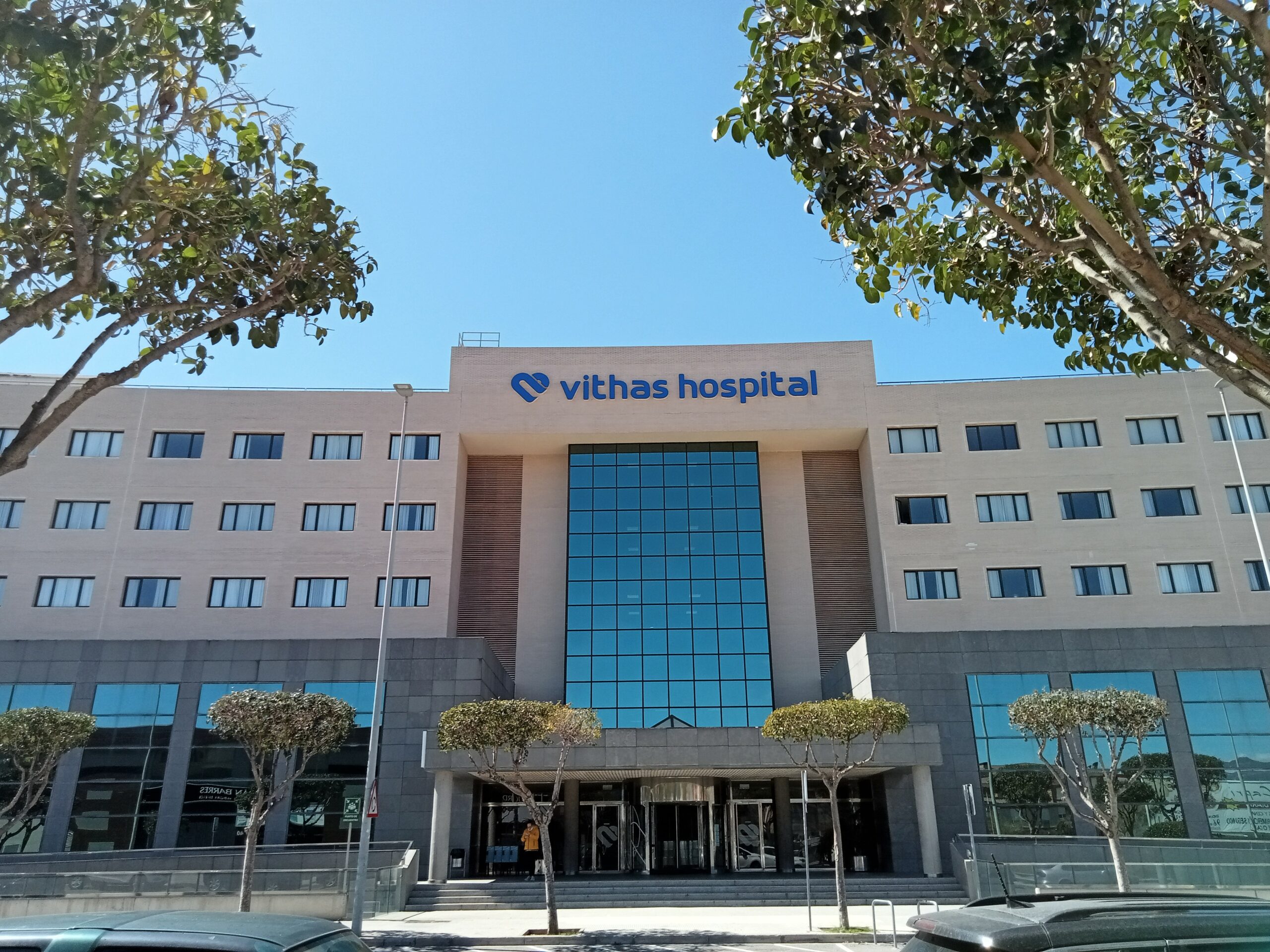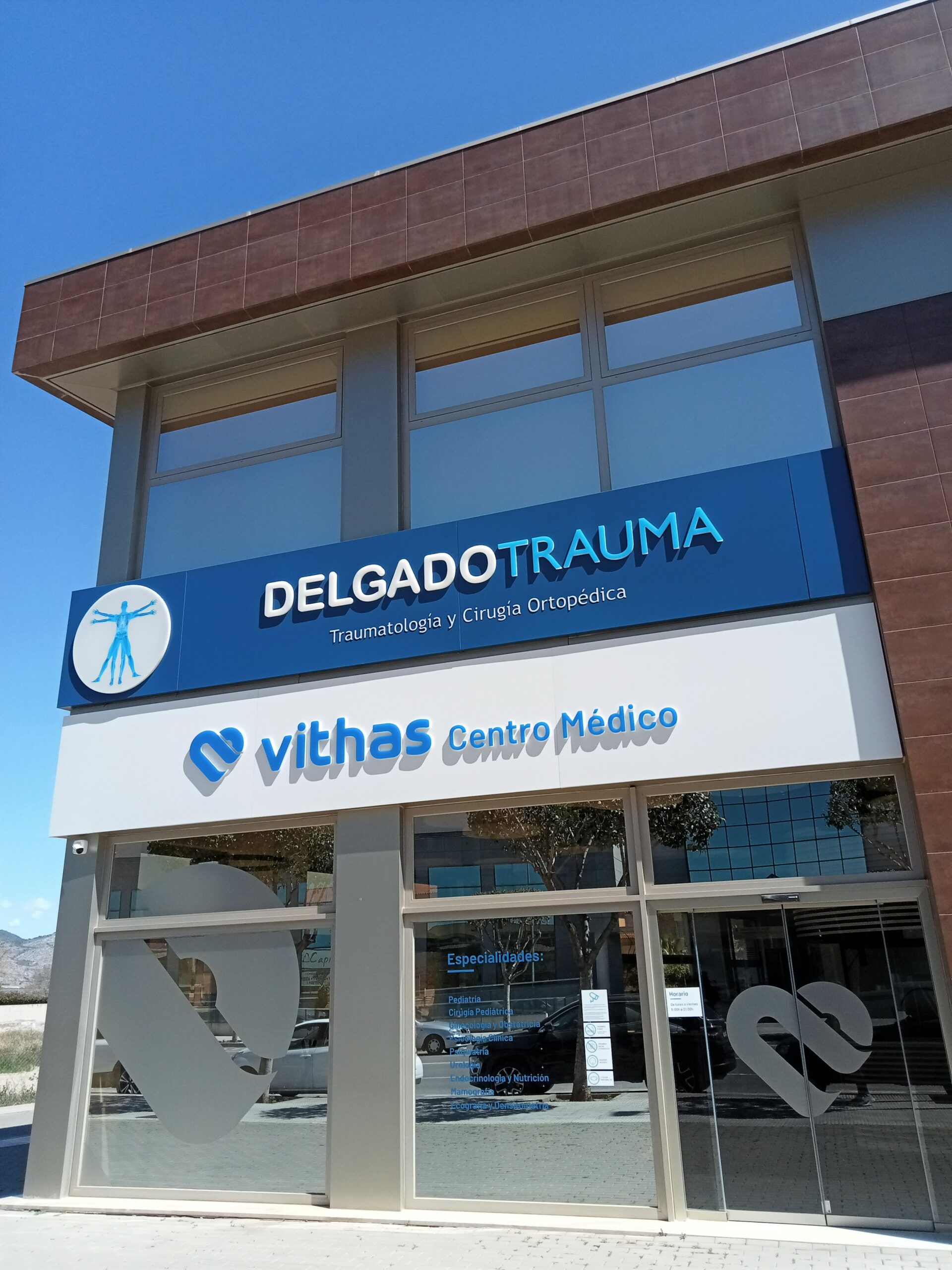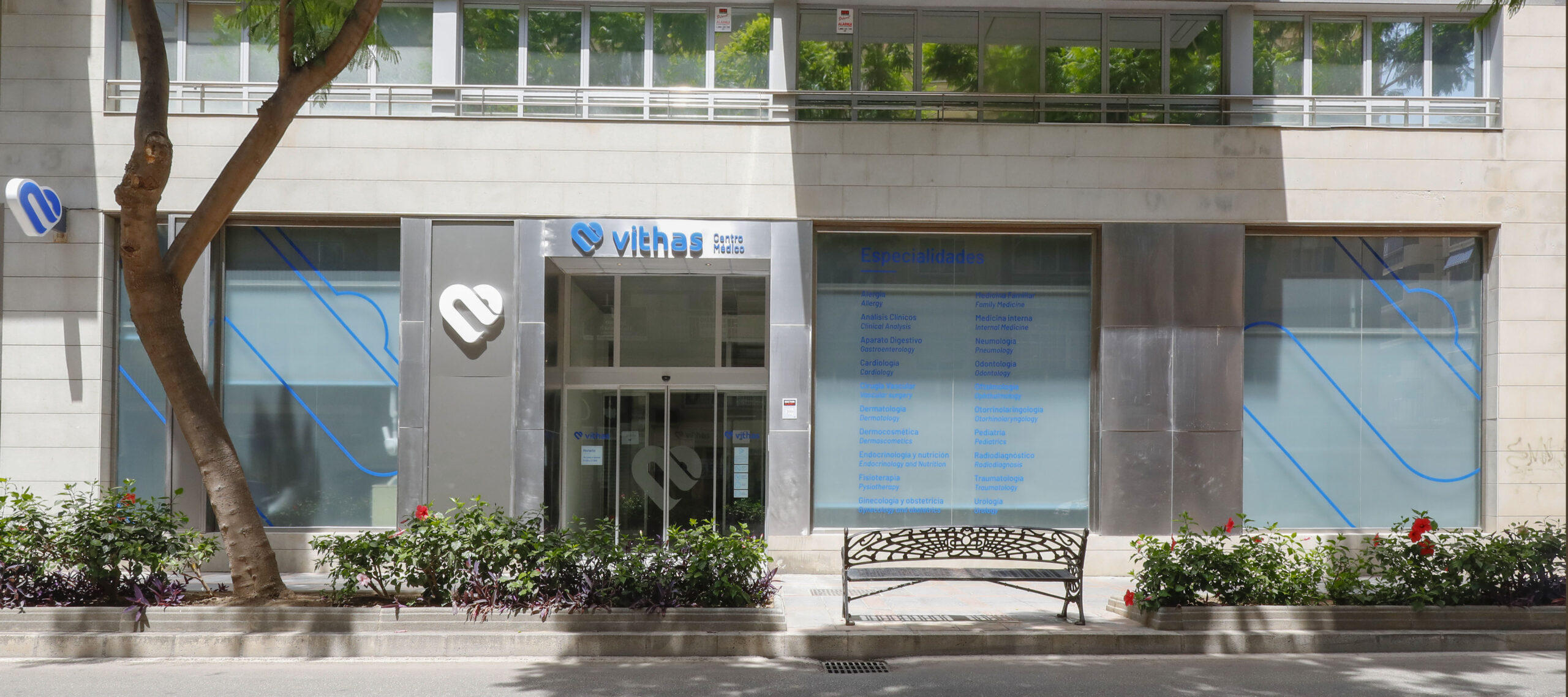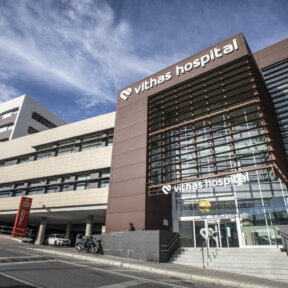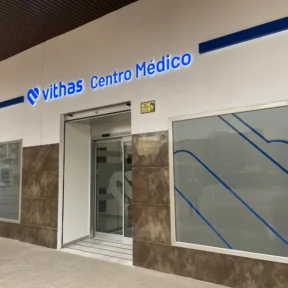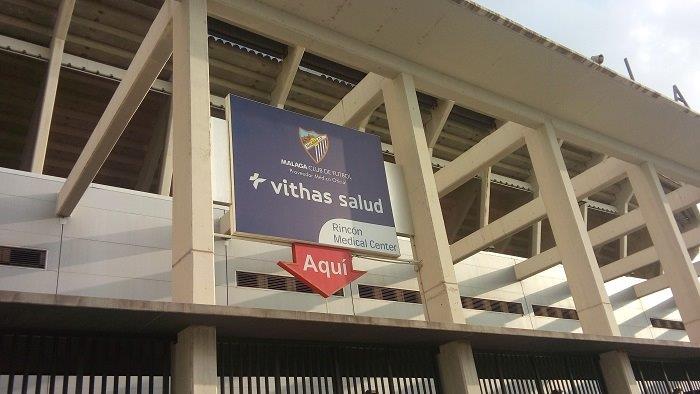What is paediatric medicine?
The Paediatric Medicine Department provides comprehensive care to children from birth — or before, for foetal conditions — up to adolescence. In addition to offering 24-hour emergency medical attention, we deliver our care in a multidisciplinary manner using the latest technical advances.
Our aim is to offer the best care for children, guaranteeing complete and specialised care to make them feel safe and looked after. Our Paediatric Medicine Service has the latest techniques and the most advanced treatments to care for your children’s health.
For us, preventing children’s pain and distress is a priority, which is why we use modern diagnostic tests to minimise discomfort during analytical tests. We have paediatric consulting rooms, an observation service and exclusive waiting rooms for children.
Which patients is it for?
The Paediatric Medicine Service at Vithas hospitals covers all children’s medical and surgical needs from birth to adolescence.
We have outpatient paediatric consulting rooms where we address the normal needs of a healthy child, monitoring their diet, growth and normal development, as well as normal childhood illnesses, and specific consulting rooms for different paediatric specialities to handle developmental disorders, where we diagnose, treat and monitor them.
Areas of specialisation
Paediatric endocrinology
The Paediatric Endocrinology Service deals with the diagnosis, monitoring and treatment of children with stunted growth, short stature, altered puberty, thyroid disorders, and in conjunction with the Child Nutrition and Digestive System Department, the monitoring of overweight and obesity problems, as well as dyslipidemia in childhood.
Child Nutrition and Digestive System
The Child Nutrition and Digestive System Service deals with the diagnosis, monitoring and treatment of all congenital or acquired digestive conditions during childhood with special monitoring of gastroesophageal reflux, cpeliac disease, inflammatory bowel disease, constipation and eating disorders, including anorexia, excess weight, obesity, dyslipidemia, etc.
Child cardiology
The Child Cardiology Service is a team of top cardiologists dedicated to child heart conditions (congenital and acquired). The service involves accurate diagnosis and treatment of murmurs, congenital heart disease, acquired heart disease, arrhythmias, etc.
Some centres offer interventional paediatric cardiology: Paediatric cardiac haemodynamics.
Neuropaediatrics
The Neuropaediatrics Service deals with the diagnosis, treatment and monitoring of common neurological disorders in children, headaches, seizure disorders, epilepsy, language disorders, sleep disorder, psychomotor retardation, cerebral palsy, as well as metabolic disorders and all neurodevelopmental disorders.
Specialists in ASD (autism spectrum disorders), SLI (specific language impairment) and hyperactivity.
Paediatric neuropsychology
Care of children and adolescents with neurocognitive impairment as a consequence of any process that affects normal brain development. Diagnosis and treatment of cognitive (attention, memory, reasoning, language, etc.), behavioural and emotional problems.
Neuropsychological or neurocognitive assessments are fundamental to seeing brain function (total intellectual ability, attention and concentration, language, memory, learning and personality, etc.) and constitute a tool that complements the rest of the diagnostic tests (MRI, EEG, etc.), allowing specialists to understand how the different areas of the brain are working by measuring the child’s cognitive abilities.
Child allergies
The Child Allergy Service works together with the paediatric medicine service to diagnose, manage and treat allergies in children, be they environmental or food allergies, carrying out individualised follow-up for the patient and always with the collaboration of the Child Digestive System or Paediatric Service.
Child ophthalmology
The Paediatric Ophthalmology Service monitors the child’s normal ocular development in parallel with his or her normal development. Routine check-ups between 4–6 years, 8–10 years and throughout adolescence are critical to detect problems that might otherwise go unnoticed. The service also diagnoses and monitors common paediatric eye conditions, whether congenital or acquired.
Child orthopaedics and traumatology
Addresses all orthopaedic and traumatological conditions (musculoskeletal disorders) in children from birth to adolescence, with a special focus on spine alterations during child development.
- Congenital malformations.
- Acquired deformities.
- Traumatic injuries.
- Inflammation and infections.
- Tumour lesions.
Paediatric surgery
Our Child Surgery Service is a great support to paediatric medicine, providing surgical solutions for congenital or acquired problems, all types of acute or chronic, digestive and nephrourological conditions, always in cooperation with the paediatric service.
Simple and complex surgeries.
ENT surgery, neurosurgery and children’s cardiac surgery complete the range of surgical specialities.
We have SPECIFIC UNITS that work together to offer joint treatment and follow-up for paediatric patients and keep families informed.
Foetal to Adult Congenital Heart Disease Unit
Comprehensive care for congenital heart diseases at all stages of life, from the prenatal period to adulthood, in close collaboration and cooperation with the Prenatal and Neonatal-Paediatric Diagnostics Units, as well as with other related specialities.
The strategic services that make up the Heart Unit employ the latest, up-to-date diagnostic and treatment techniques to offer complete care both to perinatal patients with congenital heart disease and to adult patients with acquired cardiovascular conditions or congenital heart disease.
Coeliac Disease Unit
The Coeliac Disease Unit is a specialised unit aimed at the early diagnosis of coeliac disease, monitoring and treatment of patients of all ages who are likely to develop coeliac disease, with a special focus on detecting related diseases. The unit also provides comprehensive care to paediatric coeliac patients.
Down’s Syndrome Unit
The Down’s Syndrome Unit specialises in monitoring children with Down’s syndrome in collaboration with the Down’s Syndrome Foundation www.downmadrid.org, prevention and early detection of associated health problems and treating them, with emphasis on early care.
Sports Medicine Unit
The Sports Medicine Unit is aimed at children under the age of 18 who take part in recreational or competitive sports, especially those involving high-intensity, high-level physical exercise. The unit conducts the examinations needed to ensure child athletes are healthy enough to participate, as well as to detect anomalies or sports risk, setting the recommended sports intensity.
Specialised Attention Deficit and Hyperactivity Unit
The Specialised Attention Deficit and Hyperactivity Unit specialises in the diagnosis, treatment and monitoring of patients with Attention Deficit Hyperactivity Disorder (ADHD), together with paediatricians, with joint neurological and neuropsychological follow-up. Personalised sessions, either in-person or online, and social skills workshops are available.
Early Care and Child Development Unit
The Early Care and Child Development Unit is devoted to supporting children in their development from before birth. The Child Neurology and Neuropsychology Services work together to deliver comprehensive, specialised care to children by performing preventive procedures, assessment, diagnosis and individualised treatment for each patient, taking into account their conditioning factors and carrying out adequate follow-up. Online, in-person and at-home care is available.
The care is always liaised with the child’s paediatricians and educational centres, providing multidisciplinary treatment (physiotherapy, speech therapy, occupational therapy, etc.).
Support and information to relatives and schools (pedagogical support) is a priority in our centre, as well as coordination with health and social centres.
Adolescent Unit
The Adolescent Unit provides care in this transitional period of life between childhood and adulthood.
In the unit, we accompany patients and their families during this fundamental stage of development, supporting them through physical and psychological changes with all the related specialities. Paediatric medicine, with the support of other specialities (nutrition, endocrinology, gynaecology, dermatology, psychology and psychiatry), is combined to help patients make their transition and final stage of their development.
Why come to the clinic?
Yearly paediatric check-ups allow doctors to detect growth and developmental disorders early, diagnose diseases in time and follow recommended vaccination schedules. It is a good idea to see a paediatrician once a year until the age of 14, even if your children are healthy.
Our paediatricians will assess your child’s growth and nutritional status, as well as his or her health status, detect alterations in normal patterns early and refer them to appropriate specialists when needed. Detecting diseases early facilitates their effective treatment and improves long-term outcomes.
Paediatric check-up schedule
Paediatric check-ups are essential for your child’s health and to ensure they are developing normally. They involve taking weight and height measurements and a complete physical examination. If needed, our paediatricians will request any complementary tests and administer the appropriate vaccines.
Vithas has a paediatric check-up schedule to help you keep on top of your children’s health:
- Newborn (10 days):
- Heel test to screen for phenylketonuria, a metabolic disorder
- Medical history (pregnancy, childbirth, family history of illnesses and everything related to the child at the time of birth)
- Breastfeeding
- Bowel movement and urination
- 1 month:
- Sizing and percentiles
- Physical examination
- Vision and hearing tests
- Checking skin colouring, mucous membranes, the state of the fontanelle
- Assessment of neurological status and psychomotor development
- 2 months:
- Vaccination
- Physical examination
- Assessment of reflexes and response to stimuli
- 4, 6, 9 and 12 months:
- Vaccination
- Physical examination
- Checking correct growth and psychomotor development
- Oral health and nutrition education
- 2 to 4 years:
- Vaccination
- Physical examination
- Checking correct growth and psychomotor development
- Language assessment
- 6 to 7 years:
- Vaccination
- Physical examination
- Checking correct growth and psychomotor development
- Language assessment
- Vision assessment
- 7 to 11 years:
- Physical examination
- Checking blood pressure
- Cardiopulmonary auscultation
- Peripheral pulses
- 12 to 13 years:
- Vaccination
- Physical examination
- Checking correct growth and psychomotor development
- Checking puberty development
- Dental, vision and hearing check
- 14 years:
- Vaccination
- Physical examination
- Sexual maturity assessment




